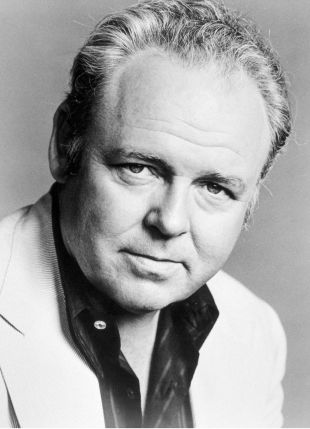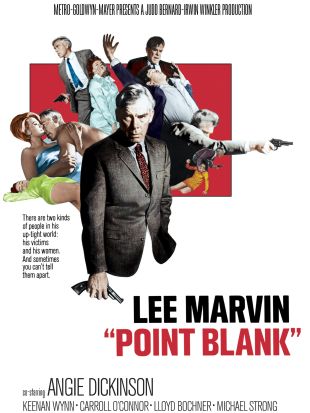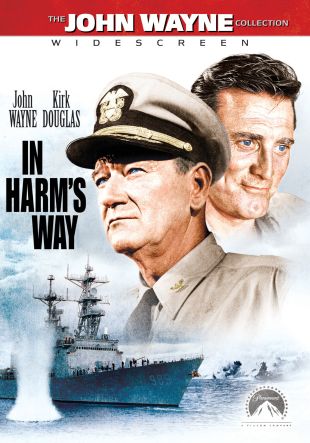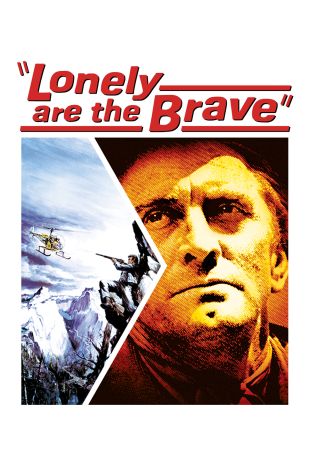Born in the Bronx, NY, to an upper-middle-class Irish family, Carroll O'Connor's father was a well-connected attorney and his mother was a school teacher. The family lived well, in the Forest Hills section of Queens, until O'Connor's father ran afoul of the law and was convicted of fraud. Despite this setback in the family's well-being, O'Connor managed to attend college and considered a career as a sportswriter, but those aspirations were interrupted by the outbreak of World War II. Rejected by the United States Navy, he enrolled instead in the Merchant Marine Academy, but he later abandoned that pursuit, instead becoming a merchant seaman. After the war, O'Connor considered journalism as a career, but a trip to Dublin in 1950 changed the course of his life, as he discovered the acting profession. While attending college in Dublin, he began appearing in productions of the Gate Theater and also at the Edinburgh Festival, where he played Shakespearean roles. Returning to New York in 1954, he and his wife worked as substitute schoolteachers while he looked for acting work, which he found, after a long dry spell in which he despaired of ever getting a break, in Burgess Meredith's production of James Joyce's Ulysses. O'Connor got a role in which he received favorable notice from the critics, and that, in turn, led to his breakthrough part, as a bullying, greedy studio boss in an off-Broadway production of The Big Knife.
O'Connor jumped next to television, at the very tail-end of the era of live TV drama in New York. Beginning in 1960 with his portrayal of the prosecutor in the Armstrong Circle Theater production of The Sacco-Vanzetti Story, he established himself on the small screen as a good, reliable character actor, who was able to melt into any role with which he was presented. Over the next decade, O'Connor worked in everything from Westerns to science fiction. He played taciturn landowners, likable aliens, enemy agents (on The Man From U.N.C.L.E., in "The Green Opal Affair"), and other character roles with equal aplomb. He also appeared in several unsold television pilots during the 1960s, including The Insider with David Janssen, and Luxury Liner starring Rory Calhoun, playing character roles; and he did a pilot of his own, Walk in the Night -- directed and co-written by Robert Altman -- in which he co-starred with Andrew Duggan. O'Connor's movie career followed quickly from his television debut, starting with appearances in three dramatic films (most notably Lonely Are the Brave) in 1961. He was one of many actors who managed to get "lost" in the sprawling 20th Century Fox production of Cleopatra, but he fared better two years later in Otto Preminger's epic-length World War II drama In Harm's Way. O'Connor, playing Commander Burke, was very visible in his handful of scenes with John Wayne and Kirk Douglas, and Preminger thought enough of the actor to mention him by name along with the other stars in the film's trailer. He had major supporting roles, serious and comedic, respectively, in such high-profile movies as Hawaii and What Did You Do in the War, Daddy?, of which the latter proved critical to his subsequent career.
O'Connor had been in demand for television roles since the early '60s. In an episode of The Outer Limits, he revealed his flexibility by playing a somewhat befuddled alien investigator from Mars, masquerading as a pawnshop owner in a seedy section of New York, and jumping from a slightly affected, carefully pronounced diction in one line to a working-class dialect and manner in the same shot (for benefit of a human onlooker in the scene). He had also given a very warm, memorable, and touching performance in "Long Live the King," an episode of Voyage to the Bottom of the Sea, and producer Irwin Allen had wanted O'Connor for the role of Dr. Smith on Lost in Space early in the character's conception, when the Smith figure was thoroughly villainous. Although he didn't get the part of Dr. Smith, O'Connor later appeared in "The Lost Patrol" episode of Allen's science fiction series The Time Tunnel. He had also been up for the role of the Skipper in Sherwood Schwartz's series Gilligan's Island, a role that was finally won by Alan Hale Jr. At the end of the 1960s, while O'Connor was busying himself in movies ranging from Westerns to crime films and mysteries, including Warning Shot, Waterhole No. 3, Marlowe, and For Love of Ivy, and distinguishing himself in all of them, CBS began preparing a television series called Those Were the Days. Adapted from a British series, it dealt life from the point-of-view of Archie Bunker, a fed-up, bigoted working-class resident of New York's outer borough of Queens. The network had tried for a big name, approaching Mickey Rooney to play the part, but he turned it down, and then co-producer Bud Yorkin remembered O'Connor's blustery comic performance as General Bolt in What Did You Do in the War, Daddy? O'Connor was offered the role and accepted. He was as busy as ever with movie work, including his portrayal of a memorably boisterous and comical general in Kelly's Heroes, which was shot in Europe in 1970, and the series -- now called All in the Family -- didn't seem a likely or essential prospect for success.
Within weeks of All in the Family's premiere in January of 1971, however, O'Connor had become one of the most recognizable and popular leading men on television. O'Connor had never played more than major supporting roles in movies, so there were no feature films to license starring the new pop culture hero; but CBS did pull Walk in the Night, the unsold pilot from three years earlier, starring O'Connor as a detective in a race against time to save a man's life, and aired it with the kind of fanfare normally reserved for major feature films. From 1971 on, O'Connor never looked back: He got star billing the next year in the network television production Of Thee I Sing (1972), and got his first chance to star in a feature film in Law and Disorder, in 1974. O'Connor would play nothing but leads from then on, and command a leading man's salary, a matter that led to a contractual dispute in 1974 that resulted in the actor absenting himself from All in the Family for a series of shows before it was resolved. From then on, entire productions, such as the TV-movie adaptation of The Last Hurrah (1977), would be built around him. He also returned to the theater periodically with far less success, starring in and directing a handful of theatrical productions that seldom got good notices or lingered long on-stage. O'Connor earned four Emmy awards as Archie Bunker, a recognition of the convincing mixture of warmth and anger that he brought to the character, and such was his popularity in the role, that he was able to parlay it into a spin-off series for four seasons called Archie Bunker's Place. It seemed for a time in the 1980s that O'Connor would be forever locked into the role, until 1987 when he got the part of laconic small-town Southern police chief Bill Gillespie in the television series In the Heat of the Night. Taking over a part originated on screen by Rod Steiger, O'Connor rebuilt the character from the ground up, making Gillespie a strong-willed, yet soft-spoken, flawed, sometimes crude, even occasionally bigoted man who was learning to be better. His work in the series earned O'Connor an additional Emmy, and he eventually took over control of the production, transforming In the Heat of the Night from a routine cop show into one of the better dramatic series of its era, with police work only incidental to its content (and hardly a car chase in sight), in a run lasting through 1994.



